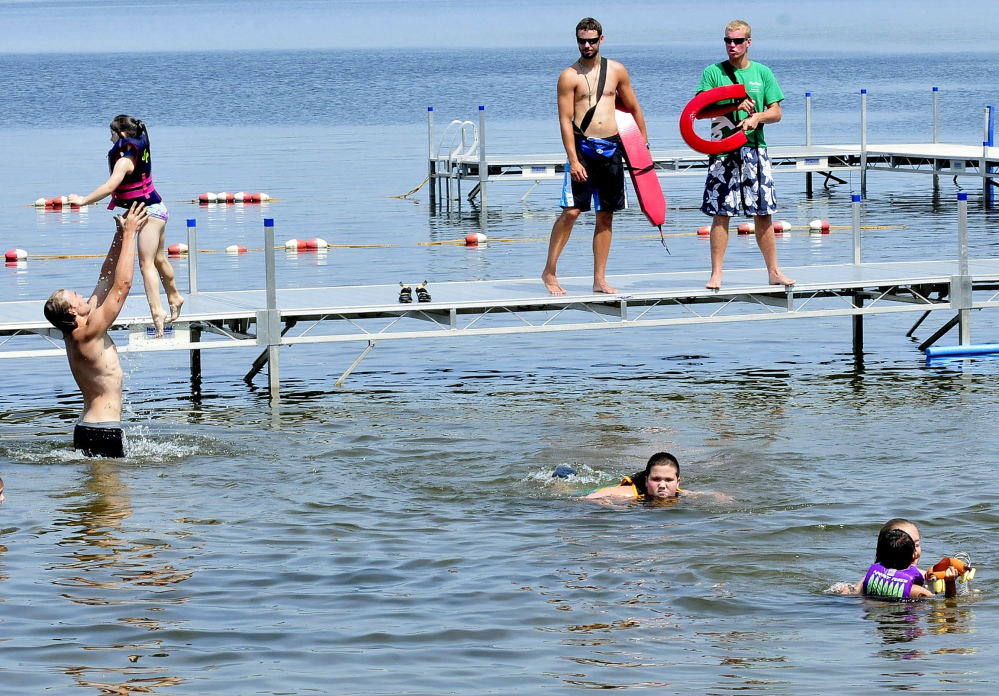AUGUSTA –– Directors of Maine summer camps say they would have to either close or scale back services if Gov. Paul LePage’s plan to assess property taxes on nonprofits becomes law.
Ron Hall, executive director of Maine Summer Camps, said Tuesday that the nonprofit tax provision could affect roughly 100 of the 200 summer camps operating as nonprofits in Maine.
“We’re worried,” he said. “We’re just beginning to get the word out. This seems to be one of the hidden consequences of the budget.”
Scrutiny of the nonprofit tax plan has been focused on large institutions, such as private colleges and hospitals. More recently, land trusts and now summer camps have sounded the alarm that they, too, could be hit by the tax.
Like land trusts, summer camps are often located on waterfront property, high-value land that could trigger the property tax provision in the governor’s two-year budget. The provision would make nonprofits liable for local real estate taxes on 50 percent of their property’s assessed value above $500,000.
Hall said such a tax would be too much for many camps to bear.
“A lot of these camps are entirely dependent on independent donations,” he said.
The $6.3 billion budget includes a proposed massive tax overhaul that raises sales taxes, eliminates revenue sharing with municipalities and cuts the state income tax. The array of provisions would have a profound impact on Maine residents and businesses. The effect on summer camps is the latest issue to surface.
According to Hall, camps such as the Pine Tree Society in Rome and Camp Ketcha in Scarborough are among the organizations that could be most affected. The Pine Tree Society has 280 acres on North Pond. According to its website, the organization runs the Pine Tree Camp, Maine’s only American Camping Association-accredited camp for people with disabilities, and Camp Pine Cone, a day camp for children with physical and developmental disabilities between the ages of 5 and 12. The camp was established in 1945.
Camp Ketcha, established in 1964, hosts about 3,000 youths through school contracts. It owns 107 acres of woods and meadows along Black Point Road.
Tom Doherty, director of Camp Ketcha, said the camp would likely have to close if the tax provision was enacted. He said the camp had an operating budget of $1 million last year.
“The margins are extremely thin here,” he said. “All the money we make is plowed back into the programs.”
Doherty said the camp charges about $200 a week. A for-profit camp, he estimated, charges more than twice that.
He also believes that the camp would have to give up the property.
“We’d never be able to buy it back,” he said.
ASSETS OF CAMPS VARY WIDELY
A preliminary review of tax filings shows the nonprofit organizations operating summer camps have varying degrees of financial support and assets. The Pine Tree Society, for example, reported over $20 million in assets in its 2012 tax filing with the Internal Revenue Service. That included $4.8 million in revenue and $1 million in private contributions.
By contrast, Camp CaPella, a camp for children with disabilities on Phillips Lake in Lucerne, reported more than $213,000 in total assets after counting liabilities in 2013. Camp CaPella reported just over $180,000 in private donations and generated $227,000 in revenue in 2013.
Hall said summer camps are still assessing how many would be subject to the property tax, but he believed the vast majority of the 100 operating as nonprofits would be affected.
It’s unclear if camps affiliated with religious organizations are affected by the governor’s plan. He has exempted churches and houses of worship from the nonprofit tax. Spokesmen for the Department of Administrative and Financial Services, the agency that drafted the two-year spending plan, did not immediately respond to a request for clarification.
Hall said many camps operate on donated land and buildings and would have trouble paying taxes because they depend on private contributions.
He was hopeful that state lawmakers would amend the governor’s budget to exempt summer camps.
HEARINGS ON PROPOSAL TO BEGIN
LePage’s proposal is in the hands of the Legislature’s budget-writing committee, which will begin holding public hearings on elements of the budget next week. The panel will review the tax on nonprofits during a public hearing scheduled for Feb. 19.
According to legislative reports, state lawmakers have studied assessing taxes or fees on nonprofits at least seven times over the past 35 years. However, Hall said the governor’s proposal has a greater chance of becoming law.
“We certainly don’t have lots of money (to fight this),” he said. “We’re hoping to educate people that this is really an unintended consequence of this bill, that it makes no sense to put the survival of summer camps in jeopardy by trying to assess a property tax on camps that are already giving so much back to the state and the people and children.”
LePage addressed the nonprofit tax during his State of the State address last week and acknowledged that the initiative is unpopular.
“Surely these large nonprofits provide good services. However, they are also large users of services and I think they should pay a little bit, and I understand it is distasteful to tax nonprofits, but they have to contribute,” he said.
A LOT AT STAKE FOR YOUNG PEOPLE
Directors from camp organizations warned that the nonprofit tax would hurt a variety of summer camps.
Mary Ellen Deschenes of the Girl Scouts of Maine said in a written statement that the tax would “have a devastating effect.”
Barry Costa of the YMCA Camp of Maine said the camps provide children with invaluable experiences, including self-confidence, problem-solving and an appreciation for the outdoors.
“Maine camps give young people a solid foundation,” he said. “Can we really afford to forfeit that?”
Steve Mistler can be contacted at 791-6345 or at:
smistler@pressherald.com
Twitter: stevemistler
Copy the Story LinkSend questions/comments to the editors.




Success. Please wait for the page to reload. If the page does not reload within 5 seconds, please refresh the page.
Enter your email and password to access comments.
Hi, to comment on stories you must . This profile is in addition to your subscription and website login.
Already have a commenting profile? .
Invalid username/password.
Please check your email to confirm and complete your registration.
Only subscribers are eligible to post comments. Please subscribe or login first for digital access. Here’s why.
Use the form below to reset your password. When you've submitted your account email, we will send an email with a reset code.